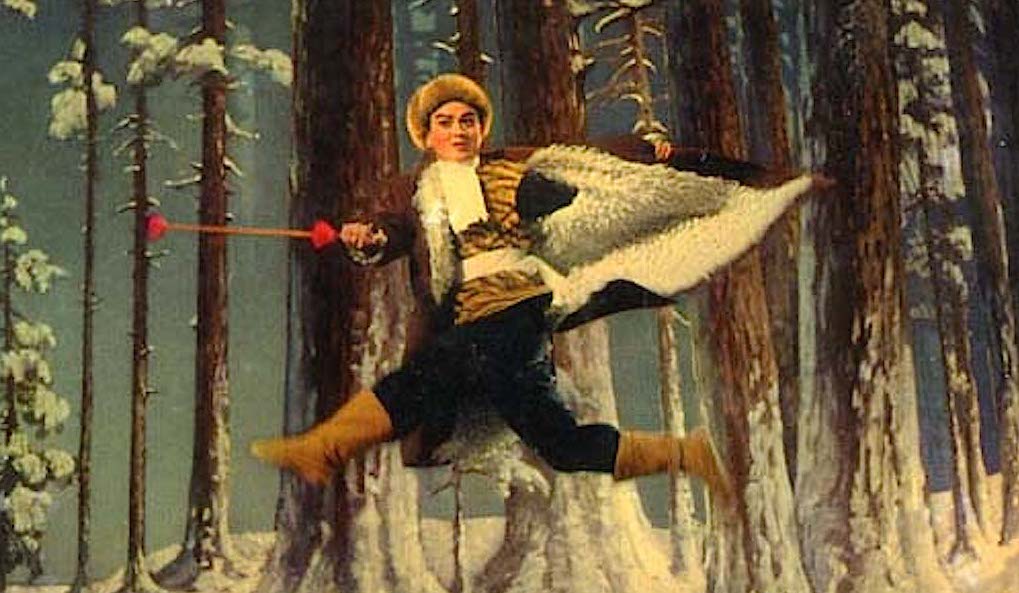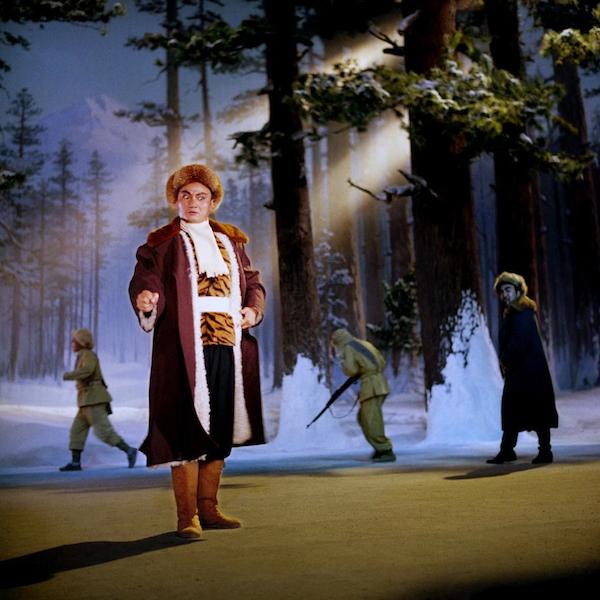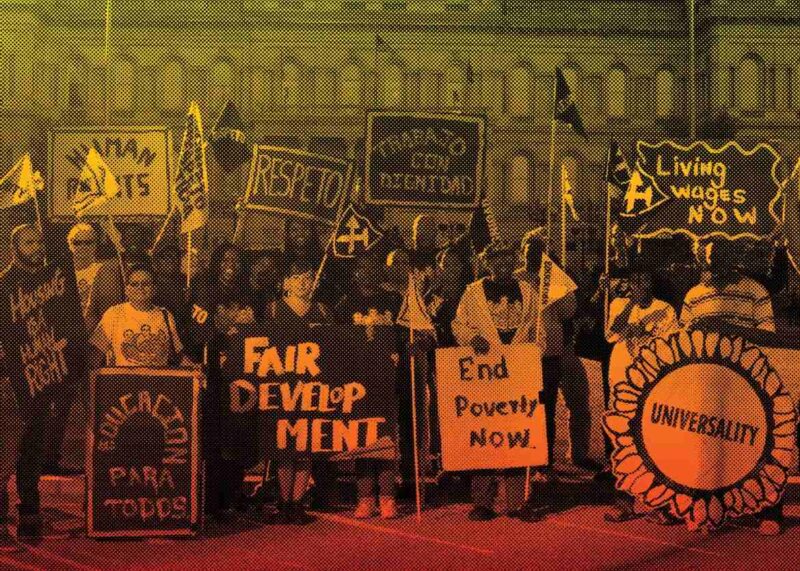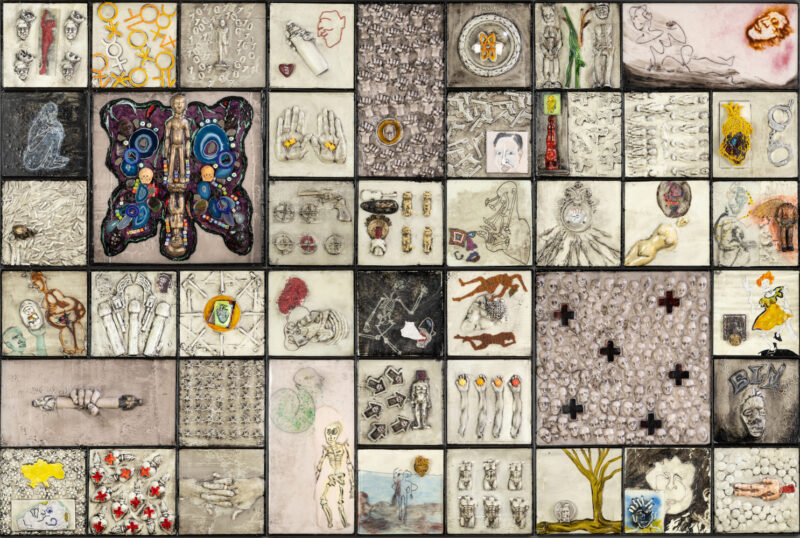A Review of the Annex Theatre’s Taking Tiger Mountain by Strategy by John Barry
If you were in China during the Cultural Revolution, there were about eight plays up for the viewing. Taking Tiger Mountain by Strategy was one of the most popular, a proud cultural hood ornament in the ceaseless battle against bandits of counter-revolution. The Annex Theatre is now taking the opportunity to place that wildly out of context, in the Chicken Box Theatre on North Avenue.
It was hard to watch the play on May 30 without wondering what exactly the play’s author, Guo Tai Gong, would have thought. It definitely wasn’t the only show in town. The Open Walls Grand Finale party was moving into high gear outside. With drumming and drinking and most of Baltimore’s intelligentsia getting down, North and Charles was jammed with people who, back in the day, would have been sent in trains to the pig iron furnaces, where they’d be given real jobs and copies of Mao’s Little Red Book. Members of Annex Theatre would probably be packing their bags, too.
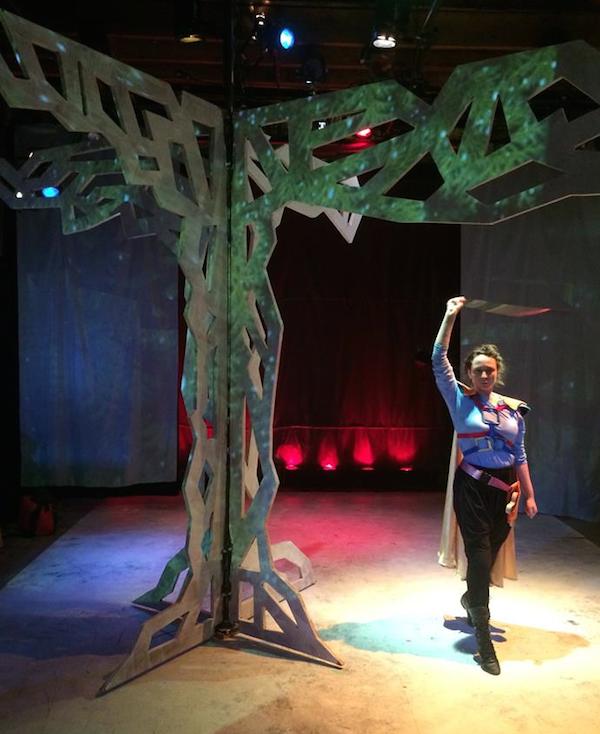
But that incongruity doesn’t trouble Director Evan Moritz and other members of the Annex, who don’t make any deliberate effort to place this play in or out of context. The opening remarks for the evening involved a discussion of a relocation of the Annex (not to the countryside!) and a brief look at the upcoming seasons. Maybe there were group discussions on theatre as mass propaganda, but, from where I sat, it seemed that somehow they’d just decided that it was A Cool Thing to Do. And they went ahead and did it. How revolutionary can you get?
The results were (a) intellectually provocative, (b) uneven, and (c) enjoyable. Mao would have rolled over in his tomb, but clearly the Annex decided to risk a little in an effort to get people to scratch their heads.
The plot itself could be used to storyboard a video game. There are the good guys – the People’s Liberation Army – and the bad guys (the counterrevolutionary bandits of the Kuomintang). The bad guys are holed up on the top of an extremely tall and difficult-to-climb mountain. The good guys, given the impossibility of a frontal assault, have to figure out how to get to them. In the spirit of cultural iconoclasm, all pretensions to petty-bourgeoisie individualism are smashed, and character development is not a focus in Guo Tai Gong’s script. Nor are complex moral dilemmas. The good guys are good guys, the bad guys are Kuomintang scumballs. It’s that simple — and if this particular production blurs the lines between good and evil, it’s because the eight actors played both good and bad guy roles.
That makes things a little confusing, because the essential strategy used in Tiger Mountain is infiltration. The hero of the story is Yang (Sarah Jacklin) who bravely volunteers to disguise herself as a bandit and, and using a contact sheet, infiltrates the band on the mountain. The primary evil target is the Vulture, played with appropriate charisma by Maria Radulescu. Vulture holds court of a band of doomed and drunken party animals and ultimately falls pray to Yang’s scheme. Principal among them is the running dog double-crosser Luan Ping, played with brilliant and cartoonish glee by Annex’s Ishai Barnoy. Ping escapes from imprisonment by the PLA and nearly blows Yang’s cover, but Vulture herself is so repulsed by Ping’s whining cowardice that she refuses to trust him. With little time left, Chief of Staff (Jonathan Jacobs, in full superhero mode), decides to start the attack using the strategic advantage gained by Yang’s infiltration of the enemy. You want to know who wins? See the play.
Other highlights include Lyndon Cordero’s synthesized sound design that, according to the program “was composed via a variety of aleatory processes such as rolling dice, throwing darts, and drawing oblique strategy cards.” Whatever that means, it created a percussive, quirky tension that contrasted effectively with the play’s more heavy handed elements. Sophia Mak’s choreography, when given free range, was also quite effective: Taking Tiger Mountain by Strategy was, in its original incarnation, spectacular. The eight actors manage at points to recapture that element on a small scale.
The singing hits from this opera included “We Will Wipe Out the Reactionaries” and “Willing to Shed Hot Blood to Make History,” which may be one reason that details and historical parallels may be lost on many audience members. However, this city is populated by a number of Chinese exchange students who might be able to fill in stories of what their parents were doing in the late sixties.
For others, this production will be mind-expanding. In the do it yourself era, the collective nature of art gets sold short. Even with guns to their heads – or at least the threat of being sent into a camp for ideological impurity – artists have come up with entertaining spectacles that, for all their rigidity, were actually fun to watch. In this fun, low-key production, Annex reminds us to take a second look at a form of popular culture that most of use choose to ignore or dismiss. The second look is worth it. The production has one more weekend, and I’d recommend it highly.
Images: Postcards from original Beiging production.
Taking Tiger Mountain by Strategy by Guo Tai Gong
“A Modern Beijing Opera” adapted and directed by Evan Moritz
May 15-June 8, 2014
Thursdays – Sundays 8:00 PM
Click here for tickets
Annex Theatre at Station North Chicken Box
1 W. North Avenue
Baltimore, MD 21201
* Author John Barry is a Baltimore-based writer and teacher.


